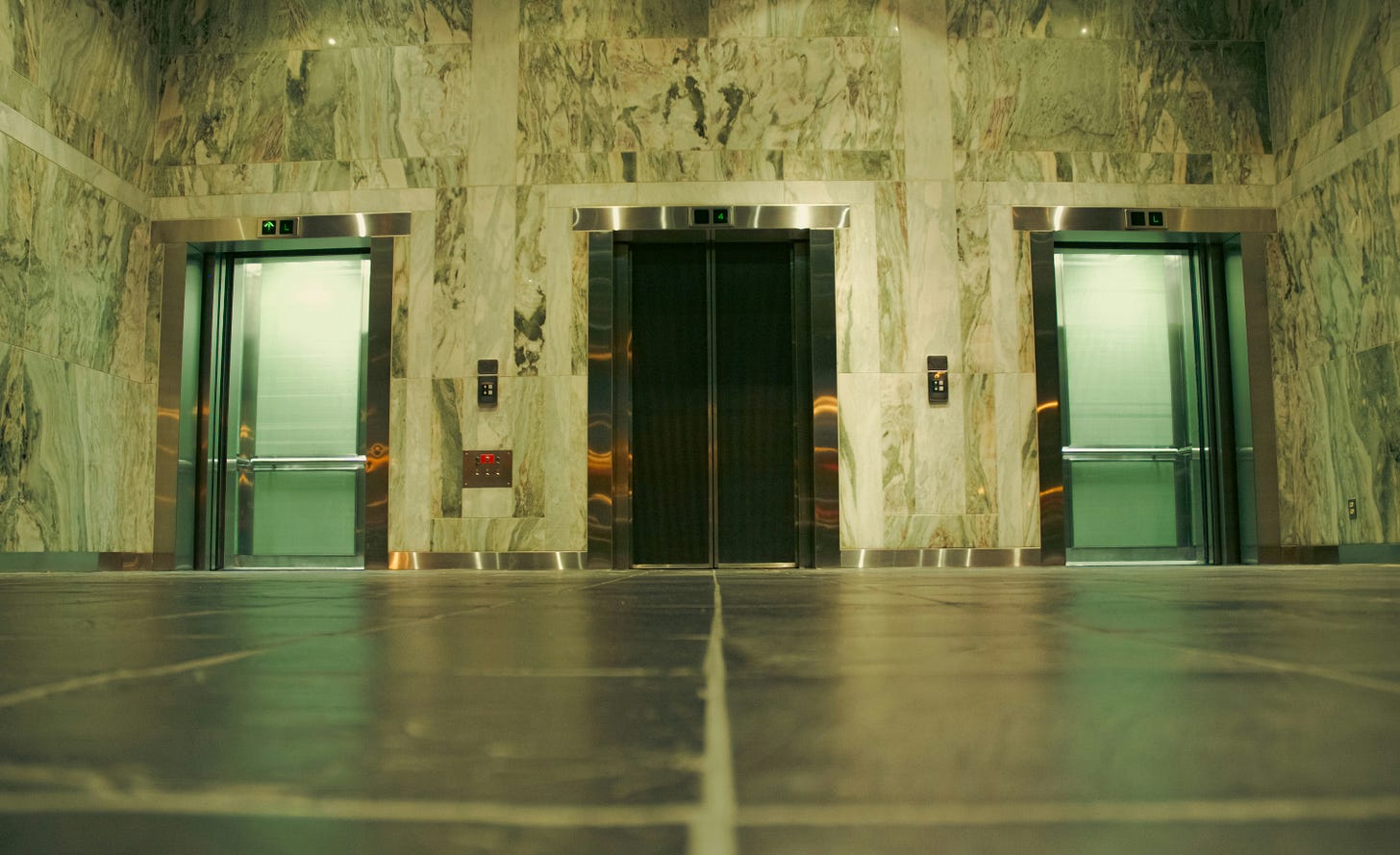Between Floors
Elevator mode: When one minute feels like eternity
Why are we SO uncomfortable in elevators? Why do we become slightly different people for that one minute? It’s as if stepping into that steel box erases whatever personality we had outside. Collective amnesia. Wait. Are we all severed? Suddenly, we’re hyper-aware of every breath, every sigh, every shoe squeak. We feel our own body existing a little too loudly.
Elevator mode ON. Hands folded, eyes glued to glowing numbers, pretending floor 11 is the most riveting entertainment ever. Phones whipped out as if breaking news will drop exclusively while we’re trapped between 8 and 9. Polite nods are offered, just enough to not spark a conversation. The choreography is universal: shift weight from left to right, stare at meaningless spot on floor, smile without meeting eyes, clear throat twice, and hope the ride ends before someone says something dangerously genuine.
Here’s the irony: elevators exist inside buildings that shape entire social ecosystems. They are the arteries of our vertical neighbourhoods, carrying gossip, groceries, and generations up and down like lifeblood.
In giant apartment complexes, you see the same faces daily – neighbours who know your grocery habits, your office timings, your laundry days, your gym hours. Outside the elevator, they’ll ask about your Pondicherry trip; inside, they become monks of silence, staring at the floor as if enlightenment hides beneath the linoleum.
Meanwhile, in smaller standalone buildings, the problem flips: too much intimacy. You don’t just know whose pressure cooker whistled; you know exactly how many whistles they let it go before turning the stove off. You know when the in-laws arrived, how long they stayed, and which poor nephew had to drop them back. You know the uncle’s blood pressure reading, the aunty’s third attempt at yoga, and the dog’s ongoing feud with the security guard’s slipper. Privacy here is more myth than reality.
The elevator in these buildings isn’t a box of strangers but a confessional booth with mirrored walls, where neighbours trade updates, pass judgements, and slip in unsolicited critiques of your lifestyle and weight. It’s less silence and more surveillance – your groceries inspected, your outfit graded, and your mood diagnosed before the doors open.
So maybe that’s why we fidget. The elevator collapses the comfortable distance we keep in daily life and forces us into proximity we don’t know how to name. These are not friends we confide in, nor strangers we can dismiss, but something in between – neighbours, colleagues, witnesses to our routines. Too close to ignore, too distant to embrace.
For one compressed minute, we become performers in a theatre of silence – adjusting bags, shuffling feet, studying glowing numbers. Our reflections multiply on mirrored walls, reminding us how small we look when stripped of context, how fragile when reduced to breath and posture.
And then, mercifully, the divine ding! The doors open into sunlight and ease.
Elevator mode OFF. We spill back into the safety of distance, hostages of etiquette, destined to return the next day. Rehearsing again, the clumsy ballet of unnamed awkwardness, with people bound only by shared air in a steel box.



I used to think this feeling I had was more a general consciousness thing but reading this, I realize No - it's a very claustrophobic lift thing. I think I envy those who can have loud uncivil conversations in lifts...Unless that is their coping mechanism as well.